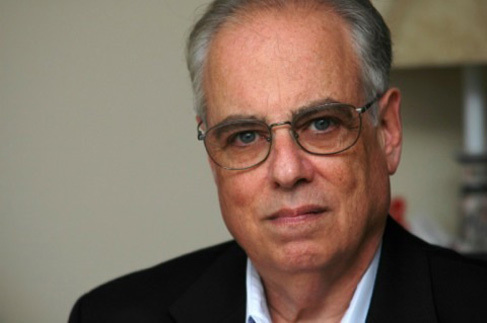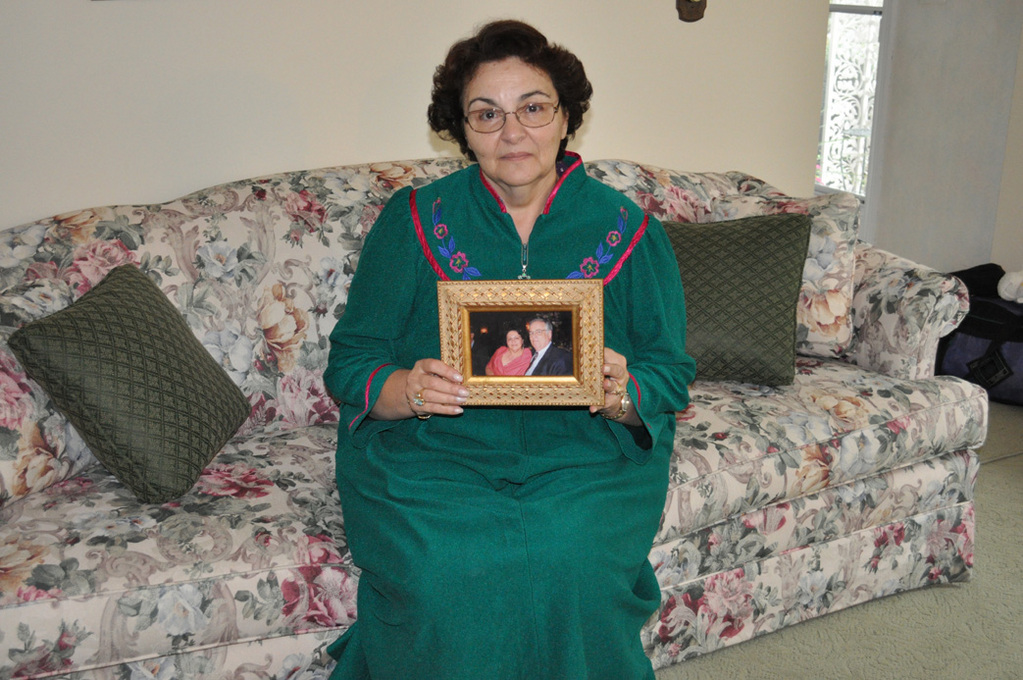A perfect match for a Rockville Centre couple comes to an end
Emotional whiplash for villager as kidney she donated to her husband is redonated after he unexpectedly dies
Esther Gaines, now a grieving widow, has experienced a roller coaster of emotions in recent weeks. The 64-year-old Rockville Centre resident is recovering from surgery that took place at New York-Presbyterian Hospital/Columbia University Medical Center on Sept. 22, during which she donated her left kidney to her husband, Arthur, 65, a retired New York City Medicaid analyst, who was facing a lifetime of dialysis.
The hope was that the donated kidney would give Arthur, who was also a talented photographer, a new lease on life and that the couple, together for 48½ years, would be able to retire together. Those plans were unexpectedly dashed when Arthur suffered post-surgical arrhythmia that caused cardiac arrest and, ultimately, death — an outcome his family says could have been prevented if the hospital had properly monitored him when he, and visiting family members, repeatedly told staff that he was short of breath and needed help.
At Esther’s suggestion, Arthur’s kidney was redonated and transplanted into a 36-year-old man from the metropolitan area. Now Esther, who has been working one day a week as a bookkeeper in Manhattan, is facing an uncertain future without the love of her life.
“God must love my husband very much, keeping me healthy all these years so that I could donate to him,” Esther said of the thrilling news that she was a perfect donor match for Arthur. The odds of that compatibility — only about 1 in 10 between husbands and wives — were even longer for a number of other reasons: the couple’s age, their fairly rare blood type (B positive), and the fact that they came from different parts of the world. He was of Polish/Russian descent, while she arrived from Greece at the age of 10 and traces her roots to Spain, where her ancestors were forced out during the Inquisition and traveled through the Ottoman Empire.
The transplant surgery was successful, the donated kidney started working immediately and Arthur was walking 12 hours after the operation. But he was also wheezing. Esther said they kept going to the nurse’s station to complain. Arthur was given a nebulizer, which delivers breathing medication in mist form, and later an oxygen mask, but he and Esther were told it wasn’t hospital protocol for a patient to get a heart monitor unless he had entered the hospital with a heart condition.
Lauren Zimmerman, their 38-year-old daughter, stayed by her father’s side until 7:30 p.m. the day after the surgery, and Esther, who was recovering in a room three doors down from Arthur’s, kissed him goodnight at 10 p.m. and, at his behest, again went to the nurse’s station to ask for help.
When she awoke on the morning of Sept. 24 and saw his bed stripped, Esther said she started screaming, “What happened to my husband, is he dead?”
The response was chilling: “We can’t tell you until the doctors get here.”
“They didn’t have the decency to wake me up to tell me he was in cardiac arrest, or call my daughter,” Esther recalled.
When the doctors finally arrived, Esther said, they were mortified.
“They told us this shouldn’t happen, it’s never happened at our hospital,” she said. Her husband was declared brain dead on Sept. 25, she said, but kept alive on a ventilator until the kidney could be transplanted again. He finally died early on Sept. 28.
The family has since contacted an attorney, but they are left with many questions. Why didn’t the nurses and doctors on the night shift watch him? Why was he left alone? Why wasn’t he on a monitor, especially after surgery and the fact that he and three other people complained about his symptoms?
In a written statement, the hospital said, “We deeply sympathize with the family on the loss of their loved one. Due to patient privacy regulations, it would be inappropriate for us to discuss specifics regarding the care provided. However, we can tell you that we are undertaking a complete and thorough review.”
Esther was surrounded last week by her two children, Zimmerman and Jonathan Gaines, 41, who are graduates of Oceanside High School, their spouses and her four grandchildren — all in from California — as well as her mother, her sister and her daughter’s mother-in-law. They and other family members and friends attended Arthur’s funeral on Sept. 29 at Gutterman’s, his burial at Mt. Ararat cemetery in Farmingdale and the period of mourning that followed, sitting shiva.
But the family’s bad news would continue. Early last Friday morning, Esther’s 86-year-old mother fell and broke a hip. She had surgery at South Nassau Communities Hospital on Saturday evening. And Esther’s sister, Rachel, after running up the stairs to help her mother, fainted on the bathroom floor, suffering from low blood pressure. Things were going wrong in the house as well: A picture fell from the wall, breaking its frame, a kitchen faucet stopped working and the phone was out of order on Friday afternoon. “It’s comical if it weren’t so sad,” said Esther. “Every time I turn around, something’s breaking.”
Dealing with a number of conflicting emotions, she said she takes comfort in the fact that a young man now has her kidney and the opportunity to have a family of his own. She said she would eventually like to meet him. But in addition to her grief over the loss of her husband and her concern about maintaining her house by herself, Esther is left with strong pangs of guilt.
“If I wasn’t a donor,” she said, “Arthur wouldn’t have had the surgery and he wouldn’t have died.”
Comments about this story? RVCEditor@liherald.com or (516) 569-4000 ext. 208.









